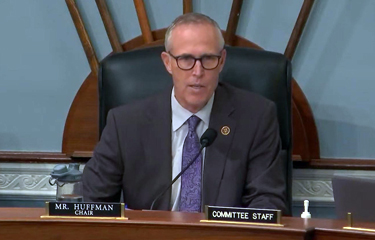The U.S. House of Representatives Natural Resources Committee on Water, Oceans, and Wildlife may have passed H.R. 4690 – the Sustaining America’s Fisheries for the Future Act, the latest attempt to reauthorize the Magnuson-Stevens Fishery Conservation and Management Act (MSA) – but U.S. Rep. Jared Huffman (D-California) believes the chances of it passing this session are slim.
The bill was approved by the committee on 29 September, 2022, leaving a relatively short time for it to pass through both the U.S. House and Senate before the end of the year, when the current congressional term expires.
“There’s not a lot of time left in this Congress,” Huffman told SeafoodSource. “I’m under no illusions, we’re late in the Congress, and it may take some sustained effort – we’ve got to get the Senate involved.”
The bill passed through committee amid opposition from key U.S. seafood groups, including the National Fisheries Institute, which said the proposed legislation didn’t take into account the industry’s specific concerns.
“During a legislative hearing on H.R. 4690 held last November, detailed testimony was presented by expert witnesses about sections of H.R. 4690 that raise alarms for fishery managers and participants,” a letter from several industry groups states. “Unfortunately, those detailed and specific concerns appear to have been ignored.”
Another letter sent by NFI and National Restaurant Association, National Retail Federation (NRF), and the National Council of Chain Restaurants claims the enactment of H.R. 4690 would damage the seafood industry, and open up certain fisheries to lawsuits, and cause certain fisheries to be restricted or even shut down.
“We are especially concerned by H.R. 4690’s proposed new requirements relating to forage-fish protection, essential fish-habitat conservation, and bycatch avoidance,” the letter states. “In each case, the existing responsibility of fishery managers to balance complex competing interests would be curtailed. Working under rigid new strictures, fishery managers – or judges responding to the claims of plaintiffs – would shut down or severely restrict some of our nation’s largest commercial fisheries to satisfy narrow legislative mandates and for reasons unrelated to marine ecosystem health.”
Huffman said a lot of those claims are unfounded.
“There was a lot of hyperbole in that, but I respect that there were some substantive concerns and difference in a few points, but it is pretty wild hyperbole to characterize things in that way,” he said. “You would think that it was some kind of a nuclear threat to some in the industry, and it was just really overstated.”
Following the bill's passage through the committee, NFI told SeafoodSource its stance on the legislation largely remains the same.
Huffman said some of the criticism in the letters was valid, and that there may be “more work” to do on certain parts of the bill.
“We’ll keep working on it, I’m not wed to the exact words in that draft,” he said.
While Huffman said he doesn’t expect to get the bill passed this session, he’ll continue working to make sure some form of MSA reauthorization remains on the agenda.
“We’ve got more work to do, and I’m committed to doing that work in the same open and inclusive and transparent way that’s got us there thus far,” he said. “I’m willing to work as long as it takes to develop this bill and pass it through the Congress.”
Photo courtesy of U.S. House of Representatives, Committee Repository







